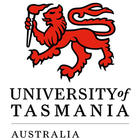Master of Speech Pathology
Master of Speech Pathology
As a graduate of the Master of Speech Pathology, you will develop the knowledge and skills to work as an autonomous speech pathologist and respond to the needs of individuals and communities who experience difficulties with communication and swallowing. You will have the tools to provide safe, ethical and quality…
Categories
COURSE DESCRIPTION
As a graduate of the Master of Speech Pathology, you will develop the knowledge and skills to work as an autonomous speech pathologist and respond to the needs of individuals and communities who experience difficulties with communication and swallowing.
You will have the tools to provide safe, ethical and quality person, family and community-centred practice in complex and changing environments. Working across a range of health, education and private settings, you will provide evidence-based services to people and communities in local, national and global contexts.
Effective communication skills will enable you to work in partnership with others and collaboratively in interprofessional teams, reflective of the industry.
You will also develop the tools to lead, advocate and innovate to develop socially responsible and sustainable actions that support every individual’s right to optimal communication and swallowing.
Learning Outcomes
1 Apply core values and principles of speech pathology using a professional approach to inquiry to inform legal, ethical and socially responsible decision making.
2 Identify and apply key theoretical, conceptual and interprofessional practice approaches to ensure services provided with people with communication and swallowing difficulties are person-centred, safe, effective, equitable, timely, and efficient.
3 Communicate and collaborate with individuals, communities, and other stakeholders to provide culturally responsive, coordinated services to achieve optimal outcomes for individuals and communities in local, national and global contexts.
4 Apply evidence-based approaches in the assessment, diagnosis, intervention planning and ongoing decision-making of individuals and communities to optimise communication and swallowing function, health, education, participation, societal inclusion, and wellbeing.
5 Demonstrate commitment to ongoing professional development and life-long, self-directed learning, and critical reflective practice and agility for working in complex and changing environments.
6 Use critical inquiry, innovation, research literacy and translational research practice to promote use and creation of research to develop socially responsive leaders and creative change agents in working with and advocating for people with communication and swallowing abilities.
REQUIREMENTS
Admission to the Master of Speech Pathology is highly competitive and achieving the entry requirements does not guarantee an offer for this course. Applicants who meet the entry requirements are ranked and the number of offers are made based on the number of places available.
• This course requires a minimum GPA of 5 for prior tertiary education and equivalent ranks as part of the admission process.
Applicants must have completed a Bachelor or Master degree (other than Speech Pathology) from an Australian university or equivalent, and have completed, in the last 5 years, the equivalent of:
• one unit (12.5 credit points or equivalent) of human anatomy, including detailed head, neck and thorax anatomy (or the equivalent UTAS Short Course)
• one unit (12.5 credit points or equivalent) of linguistics (or the equivalent UTAS Short Course)
• one unit (12.5 credit points or equivalent) of study in research methods and/or evidence-based practice, (or the equivalent UTAS Short Course).
English Language Requirements
IELTS Academic minimum score of 7.0 overall and a minimum score of 7.0 in each individual band
EDUCATIONAL INSTITUTION
The University of Tasmania was officially founded on 1st January 1890 and is located at Sandy Bay, Tasmania. In addition to the main campus at Sandy Bay, it also operates out of the Newnham Campus and the Cradle Coast Campus. The most popular courses offered are the environmental studies that include wilderness management, marine sciences and indigenous studies in Tasmanian literature. Other unconventional courses include agriculture development, studies on the community and population and ocean study programs. The university also comprises of a Music Conservatorium, Art school and a School of Clinical studies.

